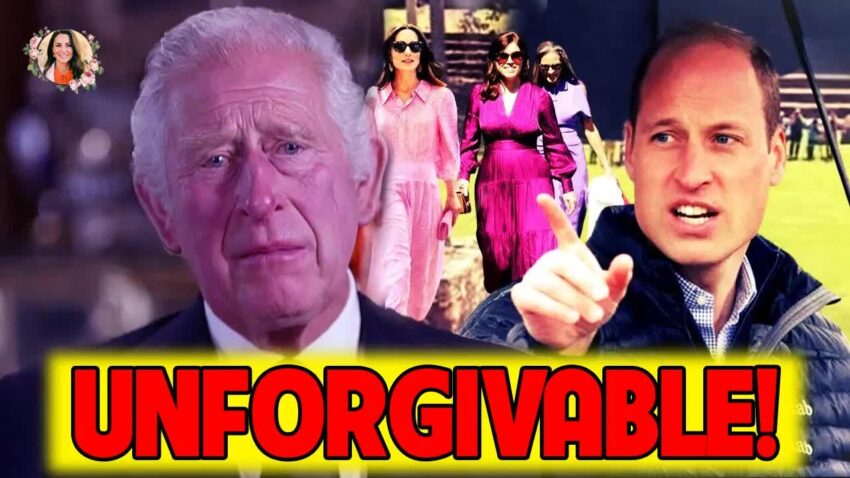Recent developments within the British royal family have sparked intense speculation and interest, particularly in light of King Charles’s health struggles.
The king has recently been diagnosed with cancer, which has led to a noticeable shift in the dynamics of royal authority.
The palace’s usual cloak of secrecy surrounding the monarch’s health is now more apparent than ever, as the gravity of the situation weighs heavily on the institution.
In stark contrast to this somber atmosphere, Prince Andrew appears to be clinging to his royal privileges, seemingly oblivious to the ongoing turmoil.
Meanwhile, Prince William and Catherine are tirelessly dedicating themselves to public service, embodying the spirit of the nation.
This juxtaposition highlights a significant divide within the family, especially as Andrew’s daughters, Beatrice and Eugenie, strive for reconciliation amidst the chaos.
Beatrice and Eugenie have reached out to their uncle, urging him to forgive Andrew and mend the rift between the brothers.
However, whether these heartfelt requests will lead to any resolution remains uncertain.
Despite their relatively junior status within the royal hierarchy, the two princesses maintain close connections with senior royals, demonstrating their commitment to the monarchy.
In recent months, Beatrice and Eugenie have been actively supporting their uncle Charles as he navigates his health challenges alongside Princess Catherine.
Yet, their association with Harry and Meghan has complicated their standing within the family.
The royal family seems determined to move past the Sussexes’ grievances, focusing instead on maintaining its dignity and integrity.
William is clearly ready for a change, advocating for a royal family that reflects modern British values.
The monarchy, once beleaguered by public relations issues, is now emerging with a renewed sense of purpose, distancing itself from internal squabbles.
King Charles and Queen Camilla have chosen to weather the storm quietly, allowing the dust to settle while prioritizing the monarchy’s future.
This calculated silence speaks volumes, as it underscores their commitment to preserving the institution for future generations.
By concentrating on Prince William’s evolving role, they are laying the groundwork for a monarchy that can adapt to contemporary expectations.
In a world where public sentiment can shift rapidly, their strategy appears to be paying off.
Amidst the ongoing tensions, Prince William has found solace in his friendship with Mike Tyndale, a former rugby star who has become increasingly significant in the monarchy’s long-term vision.
Tyndale’s relatable charm has brought a refreshing perspective to the royal family’s public image, allowing them to connect with a wider audience.
Since Princess Catherine’s cancer diagnosis earlier this year, William has leaned on Tyndale and Peter Phillips for support, filling the brotherly void left by Andrew.
This network of trusted friends seems to be crucial during these challenging times, helping William navigate his responsibilities as a royal.
As the monarchy prepares for a potential transition, there are whispers that Mike’s wife could step into a pivotal role akin to Princess Anne’s when William ascends the throne.
The idea of Zara Tindall being a close ally to William makes sense, given their longstanding friendship and mutual trust.
Despite the pressures of royal duties, William has demonstrated resilience, continuing to engage in solo responsibilities both before and after his marriage.
With a solid support system in place, he is well-equipped to handle the demands of his position, showcasing the strength of familial bonds within the royal fold.
As the British monarchy stands on the precipice of transformation, the focus remains on unity, tradition, and the future.
The coming months will undoubtedly reveal how these dynamics evolve, but one thing is clear: the royal family is ready to embrace change and emerge stronger than ever.
